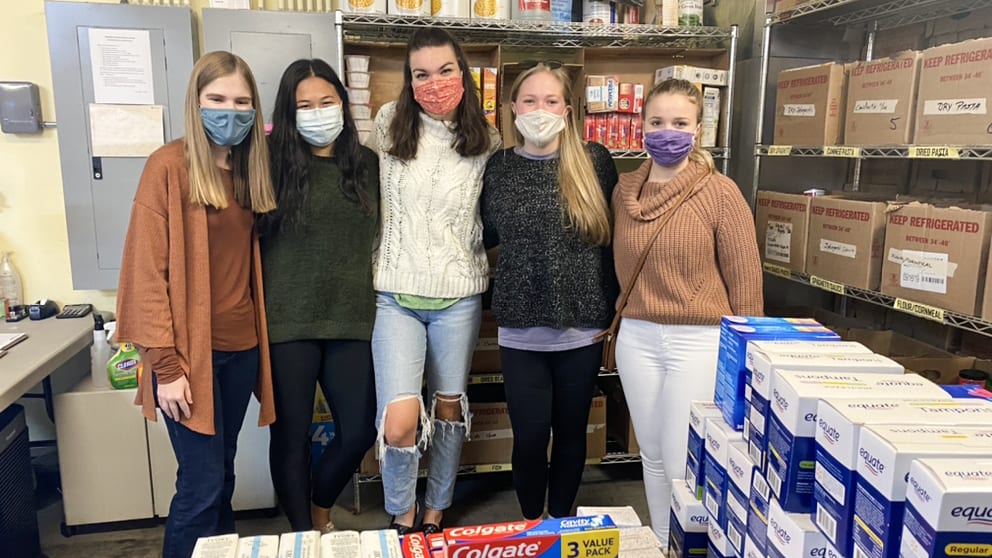Sometimes, a plan just comes together.
It was the summer of 2019 when Madison Moeller — a student at Clemson University — was introduced to several people involved with the Charleston chapter of the Homeless Period Project.
“I met some women who were part of the organization,” she said. “They invited me to some meetings and I found it to be a really cool and interesting project. I came to school the next semester hoping to start it.”
That’s when she came across a former classmate at Hanahan High School — Marissa Jansen — who shared the exact same vision.
“Marissa came to me and said, ‘Hey, I’m thinking about starting this group at Clemson,’” Moeller said. “I remember saying to her, ‘No way! I was thinking the same thing. We should do it together.’”
And with that, the idea for the Homeless Period Project (HPP) at Clemson University was born.
Founded in 2015, the national nonprofit serves to provide menstrual products to people in need. Jansen and Moeller worked together to get approval for the student organization at Clemson in Spring 2020 and expanded its mission to also reducing the stigma around menstruation through education.
The organization — now in its first full year of operation due to COVID-19 cutting it short last spring — has grown to about 60 student members.
“This became an outlet for me to learn more about menstrual health,” said Jansen, a senior health science major who serves as the organization’s director. “A lot of students are left in the dark when it comes to their health and this provided me a way to be of service to those who needed it.”
Jansen estimates the organization delivers about 1,800 to 2,000 menstrual products each month to students in need. The products are dropped off at a student’s doorstep and are the direct result of donations or funds allotted from Clemson Undergraduate Student Government (CUSG).
HPP has expanded beyond campus and into the local community, too. They’ve sent products to Leath Correctional Institute in Greenwood and provided extra supplies to Clemson Community Care to distribute to traditionally underserved populations. They’ve held packing parties at the Barnes Center on campus and worked with other student organizations, such as the College Panhellenic Association, Clemson College Democrats and Clemson Debate Society.
University faculty and staff have taken notice of the group’s efforts, as well.
“I was super excited to hear about this initiative,” said Jennifer Goree, director of Healthy Campus. “I’m always inspired when our students take the initiative to address circumstances of social inequity. Trying to provide menstrual products for all of our students — with an external focus on the community — is particularly inspiring.”
Jansen and Moeller hope to expand the organization’s educational efforts, which include the Period Pal program — a free subscription service for anyone in the Clemson community to receive menstrual products. They hope to invite speakers to campus to help raise awareness of menstrual health issues they feel are often overlooked. In March, they presented on menstrual crises during the virtual Women in Leadership Conference.
Ultimately, they’d love to help make menstrual products available inside of academic and residential facilities at Clemson.
“That’s our dream,” Jansen said.
Sounds like it’s all going according to plan.
Editor’s Note: For more information, visit Homeless Period Project at Clemson University on Facebook and Instagram.

